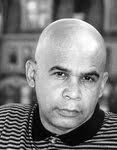By: Trevor Loudon
New Zeal
Joe Sims is co-editor of the Communist Party USA newszine People’s World.

In a recent article in the Communist Party theoretical journal Political Affairs, Sims takes to task another comrade, C.J. Atkins, who had effectively advocated dumping the “communist” label in order to be able to work more effectively inside the Democratic Party.
Sims acknowledges that working with and inside the Democrats “will be an area of engagement for those wanting to make a difference.”
He even acknowledges the possibility that the communists may be able to ‘capture’ the Democratic Party entirely.
But Sims warns, it would be dangerous to dissolve entirely into the Democrats. Communists must keep their options open, working both inside and outside the Democratic Party as circumstances dictate.
But, clearly, the U.S. has entered a new political moment. Heightened class and democratic struggle, the Great Recession and its aftermath, Obama‘s ascent to the presidency, the assertive posture of the AFL-CIO, the growth of social networks, the counter-revolt of the extreme right, all have combined to produce an unprecedented situation – and opportunity.
U.S. ideological life is also in flux. A broad radicalization process with its roots in capitalism’s deep systemic crisis is at work. As polls repeatedly indicate, a broad left current flows in the streams of public consciousness: fully a third of America’s youth have favorable views of socialism.
Anti-communism too is not the force it once was. Just recently in the deep south, a labor council bought an ad for the Illinois People’s World annual banquet, congratulating the PeoplesWorld.org and its labor editor, John Wojcik, for a prize-winning article, an inconceivable event in the not too distant past. In Connecticut, state AFL-CIO leaders participate in PW events where the CPUSA anniversary is celebrated; in Cleveland a well-known communist, Rick Nagin, running in a non-partisan race for City Council received the city’s AFL-CIO endorsement and nearly won…
Of course, there is no doubt that the communist movement while growing remains small. There is also little doubt that its problems are not unrelated to similar ones in the labor and democratic movements.
The CPUSA from this standpoint has held its own with several hundred spontaneous applicants for membership a year for nearly decade. Its websites reach 5,000 readers a day, or 30,000 in a week. With all its weaknesses, the party has a national infrastructure and an experienced group of organizers and activists. This background unfortunately is missing from Atkin’s analysis.
It is certainly the case that in the U.S. the real stuff of politics and governance occurs through the two mass political parties. Here is where the action is and it is here, mainly through the vehicle of the Democratic Party, that the peoples’ movement fights for its interests. Serious politics cannot stand apart from these struggles…
For the foreseeable future Democratic Party circles will be an area of engagement for those wanting to make a difference.
That said, even with the growth of newly independent forces operating within the Democratic Party, it’s hard to see how the role of a communist party could be realized within these confines. Electoral work by itself cannot be understood as constituting the sum of a party’s activity, particularly a revolutionary party.
A fighting party’s role requires timely engagement in strikes or protests against evictions, police violence, racist, sexist and homophobic attacks etc. It has to constantly link these issues to the crisis of the system and advocate for its replacement. Building class unity, consciously developing socialist consciousness, the supreme importance of maintaining an independent financial structure, (without which political independence is a joke) are all vital aspects of its role. It is here that the fight for the short-and-long term interests of the working class is realized. This naturally requires a system of organization (clubs) and methods for making its views known and developing them (press/Internet, schools).
A working-class party therefore needs complete financial, organizational and political independence.
But what, it might be asked, of the newly independent groups in the Democratic Party? Are their experiences not suggestive? Do they not have freedom of movement and fundraising? And more importantly are they not contesting within the Democratic Party over its direction and program, with labor going toe-to-toe with capital? Is it not possible that trade unions and allied partners could win such a contest and turn it into an instrument of radical reform and change?
These are important questions and the answers are uncertain, depending largely on circumstances that cannot be foreseen. One does not have a crystal ball and even an unlikely outcome such as capturing the Democratic Party cannot be completely ruled out.
What is certain is that the CPUSA must be part of this broad struggle in which two trends – the old Democratic Party machine and the all peoples coalition – continue to coexist in cooperation and antagonism. What is also certain, however, is that in this great contest the working class component of this coalition has only one thing on which it can safely rely: its own capacity for self organization and defense of its interests…
While the Party’s tactical adjustment now requires more work alongside the Democratic Party, this cannot and should not preclude where possible other local alternatives…
Like a good Leninist, Comrade Sims wants it both ways. The Communist Party should continue to infiltrate and influence the Democratic Party, but simultaneously maintain an independent financial and political base.
The leaders of the Communist Party USA may be misguided, but they are certainly not stupid.
Why should they change a winning formula?















